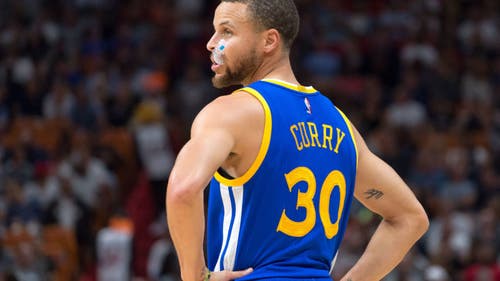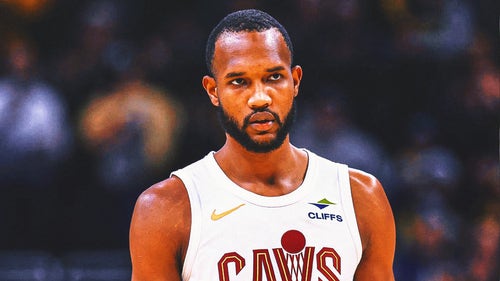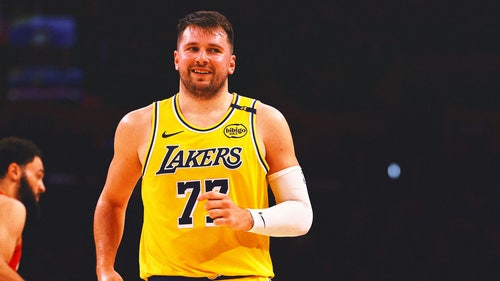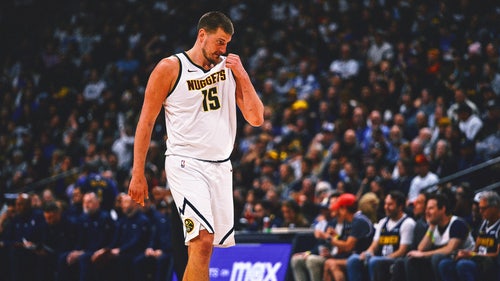
2016-17 NBA Preview: Brooklyn Nets
The Brooklyn Nets are still trying to find an identity after a move from New Jersey, and it’s probably going to be another awkward season of piling up losses for a draft lottery they can’t fully reap benefits from. There’s some promise, however, and a better front office may be leading them down a sunnier path.
2016-17 in review
The Nets had a depressing, grey season, and, well, there wasn’t much of note. Their best attribute was an absence of something: they were first in the league in avoiding fouls. Otherwise, maybe they were league average at something, but more likely they were near the bottom of a category. They cycled through a couple coaches, and they can’t even capitalize on their badness — as a result of the large trade to bring in Kevin Garnett and Paul Pierce three years ago, Boston had held the Nets’ first round pick, who was third overall. On a positive note, last season also included naming Sean Marks as general manager, a Spurs front office alumnus with some promise. The team appears to be settling for long-term gains, instead of short-term fixes that ultimately doom their future leverage.
Rotation players in: Jeremy Lin, Trevor Booker, Greivis Vasquez, Luis Scola, Randy Foye, Justin Hamilton.
Rotation players out: Joe Johnson, Thaddeus Young, Shane Larkin, Donald Sloan, Jarrett Jack.
The Nets actually had a high amount of roster turnover, but there have been no game-changing moves and, unfortunately, their first round draft pick was taken by the Celtics. Losing Joe Johnson and Thaddeus Young, two useful players who positively contributed, would hurt any bottom-cellar team like the Nets, but Jeremy Lin fills a hole at point guard, which was previously inhabited by Jack and Larkin, and adds a playmaking dimension that was lacking. Some of the other new pieces are veterans who won’t move the needle (Vasquez, Scola, and Foye) but Trevor Booker is a decent rotation player — he’s an energetic power forward who’s added some range. Likewise, Justin Hamilton is a center with three-point range, and he’s back in the NBA after a good season in the top Spanish league (the ACB.)
2016-17 projected
Sadly, while the Nets will probably be better, too much won’t be different for the team. Brook Lopez is still a fixture, and there’s not enough talent to push the team into playoff contention. Jeremy Lin is sorely needed, but at best he’s just above average — that says a lot about how bad the roster was. Rondae Hollis-Jefferson is their one true young building block, but he’s a wing who can’t shoot. And while a defensive ace can be valuable, they have little else right now for their future.
On the bright side, this is a great situation for Jeremy Lin because he actually gets the keys to the car, instead of languishing in an awkward role like his stint with the Lakers. Linsanity started in New York, and by a strange twist of fate ultimately it might become his long-term home, just for another team. Lin is at his best in the pick-and-roll, so the Nets are not an ideal situation; but it’s not like they’re entrenched with a star who won’t work well with Lin. They don’t have anyone.
With Rondae Hollis-Jefferson, the Nets do have a keeper, and this will (hopefully) be his first full season in the league. He was a precociously talented defender already — young players, especially rookies, usually lag there — and it’s fascinating to consider how good he could become. He’s already loved by advanced stats, partly due to his high rate of steals, and draft models liked him too. While his shooting is scary (bad), they still played well with him and shooting is more of a teachable skill than, say, having ridiculously long arms and exceptional quickness.
Success for the Nets amounts to finding a diamond in the rough because they have so few resources. The Spurs are the best at this, plucking a guy from obscurity and mining high levels of value. Sean Marks is hoping to import that system, and Brooklyn will feature an array of young guys who are unheralded but have potential, from Caris LeVert to Chris McCullough. They may find the next Jeremy Lin, but the sane projection is pretty depressing: not much will happen for the Nets.
Quick statistic
I’ve already mentioned Rondae Hollis-Jefferson’s proclivity for steals, but he’s historically unique for a rookie when you combine that with another stat: rebounding. He was an excellent rebounder for a wing player, and among rookies with at least 500 minutes and 3 steals per 100 possessions, only Larry McNeil, known historically for the most made field goals in a playoff game without a miss with 12, had a higher rebound percentage. But, glancing at the players in the table below, it’s usually a good sign when you make the list — there are guys like Magic Johnson and Michael Jordan, along with defensive pests like Tony Allen. Wing players with high rebound and steal rates are often great players — it’s a great sign to see your rookie with those attributes. One may argue that we didn’t have enough minutes from Rondae for any conclusion, but steal and rebound rates stabilize quickly and those were seen as his strengths heading into the draft.
source: basketball-reference
Summary
The Nets will probably be better than last season, and there’s a little hope showing through some cracks, but it’s still bleak in Brooklyn. From my composite projections, which include an aging curve, Brooklyn’s best players will be barely above average. This will not be a good team, and they lack assets to drastically change their situation. If they do become a winning team or even get close to 0.500, consider it a great accomplishment and a borderline miracle.
Win predictions
Mine: 26.4. A blend of several metrics, including Dredge, with a few other factors considered, like coaching.
Andrew Johnson’s: 27. A combination of PT-PM (a SportVU player tracking metric) blended with RAPM. Two-time reigning champion of the APBRmetrics board predictions contest.
Nick Restifo’s: 26. A simulation using BPM and RPM for player value, which includes game effects like altitude and rest.
Kevin Ferrigan’s: 27. A player projection system with inputs from RAPM, BPM, height, and age.
More from Nylon Calculus
This article originally appeared on










